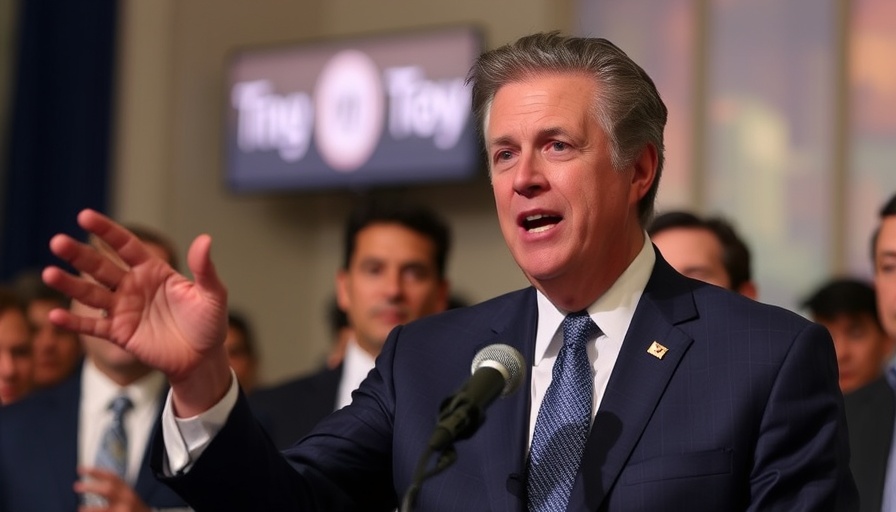
Navigating a Digital Dilemma: California's Age Verification Bill
As California takes steps towards implementing online age verification mandated by a new legislative proposal, parents are left grappling with the implications of this shift. Governor Gavin Newsom now stands at a crossroads, balancing pressures from Big Tech and Hollywood, both vying for influence over the new law. While aimed at safeguarding children online, the bill has ignited a contentious debate over privacy, technology, and creative expression.
Why Age Verification Matters for Parents
The Push for age verification stems from undeniable concerns regarding children's safety on digital platforms. With the internet rife with inappropriate content, California's bill seeks to ensure that age-appropriate filters are put in place, particularly for platforms that host high-risk materials. Parents might feel relief knowing that such measures could potentially shield their children from exposure to unsuitable content. However, this sense of security is tempered by ongoing discussions regarding adults' privacy and the practicalities of enforcing such regulations.
Big Tech vs. Hollywood: A Clash of Titans
Interestingly, support for this bill has gained traction from tech giants like Meta and Google, who surprise many by endorsing the proposed regulations. They perceive the bill as a pathway to align with their child safety initiatives, potentially minimizing their legal liabilities regarding minors on their platforms. In contrast, Hollywood's response has been staunchly opposed. The Motion Picture Association argues that this new age verification could hamper creative expression and create confusion for families who may share accounts across various devices. This raises concerns about whether the law could discourage creativity in children's programming or prompt more parents to limit their children's access to platforms like Netflix or Disney+.
Challenges Ahead: Privacy Vs. Protection
Despite the bill's intentions, privacy advocates are raising alarm bells about the risks involved with the proposed age verification systems. The law permits parents to input their children's ages during device setups, an honor system that many experts believe could lead to misuse. Critics argue this would create a false sense of security, undermining the overall intentions for age verification. Additionally, the absence of biometric checks raises further questions about how effective this method will be in reality, leading many parents to ponder if their children will be adequately protected.
Expect Waves of Change
Should Governor Newsom sign this bill into law, it may not only reshape practices within California but could also catalyze a nationwide movement. Experts anticipate that similar regulations could follow in other states, potentially leading to a patchwork of age verification systems across the United States. As California often sets trends in tech regulation, the outcome of this bill may prompt discussions around federal standards for digital platforms, emphasizing the significance of protecting children without compromising user privacy.
What Parents Can Do Now
As the landscape continuously evolves, parents would do well to stay informed about the bill's progress and its implications. Engaging in conversations with children about online safety and content can help mitigate potential risks, while encouraging them to utilize available parental controls on their devices. Moreover, advocating for balanced solutions that prioritize children's safety without infringing on privacy rights remains essential, as the digital world is ever-changing.
Looking Forward to National Standards
The ongoing discussions surrounding California's age verification bill underscore a national debate about children’s safety online. The potential implications of this legislation stretch far beyond state lines. As parents, remaining vigilant about these developments can ensure that the needs of our children are respected, allowing them to navigate an increasingly complex digital world safely.
 Add Row
Add Row  Add
Add 




Write A Comment